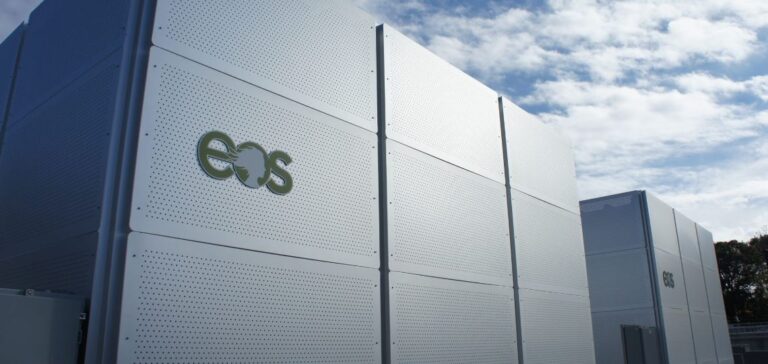Eos Energy Enterprises announced it has secured a second disbursement from the loan provided by the Loan Programs Office (LPO) of the US Department of Energy (DOE), as part of an initial financing of $90.9 million. This second payment of $22.7 million completes the initial funding of $68.3 million received in December 2024. Covering 80% of eligible costs, the loan enables the American company specialising in zinc-based Battery Energy Storage Systems (BESS) to finalise its first industrial production line. The project, named AMAZE, addresses increasing demand for long-duration energy storage solutions in the United States.
Gradual increase in production capacity
Nathan Kroeker, Chief Commercial Officer and Interim Chief Financial Officer at Eos Energy, said that production volumes on the first industrial line are increasing each week, progressively moving closer to the total targeted capacity of two gigawatt-hours (GWh). According to Kroeker, this DOE financing supplements recent funds raised through convertible bond issues and capital increases, further strengthening Eos Energy’s financial position. These funds also support the construction of a second industrial production line.
The company is already planning to install a second state-of-the-art manufacturing line, recently ordered by Eos Energy to respond to steadily growing demand. This demand notably originates from data centres and customers requiring secure storage systems with flexible discharge capacities. According to Eos Energy, recent Memoranda of Understanding (MOUs) totalling 6 GWh capacity are expected to soon convert into firm orders.
Financial and industrial consolidation
These developments follow shortly after Eos Energy successfully closed concurrent fundraising efforts through the issuance of common shares and senior convertible notes, totalling $336 million. These financial transactions have allowed Eos Energy Enterprises to significantly restructure its balance sheet, reduce its capital costs, and accelerate domestic industrial growth.
Amid strong demand for energy solutions produced in the United States, the American company intends to further develop its local industrial infrastructure, creating additional domestic jobs. Expansion of these manufacturing lines should enable Eos Energy to adapt to rapid growth in the domestic market for long-duration storage solutions, now driven by strong demand from major energy consumers and a clear preference for technologies manufactured in the US.





















